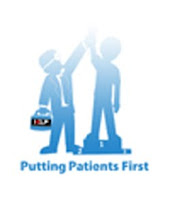Dr.Sanjay Mongia has done his Neurosurgical training from National Institute of Mental Health and Neurosciences (NIMHANS ) Bangalore, India . He currently operate out of Premier Health Institutes in Mumbai & Delhi. He has 15 yrs of Neurosurgical experience. He is specialized in Deep Brain Stimulation for Parkinson’s disease, Epilepsy Surgery , Vagal nerve Stimulation for Depression , Surgery for Obsessive Compulsive Disorder ,Gamma Knife Surgery & Spinal Surgery . He has worked in premier Neuro Surgical Institutes in Canada , USA & Europe focusing on recent advances in cutting edge Neurological Sciences . He aslo does Gamma Knife Radiosurgery (Non Invasive Neuro Surgical Technique ) for the management of Brain tumors , Vascular disorders & Functional disorders . He has designed 2 websites to educate the Public on Neurological diseases www.neurosurgeon.co.in & www.gammaknife.in .
Epilepsy is a common chronic neurological disorder that is characterized by recurrent unprovoked seizures. These seizures are transient signs and/or symptoms due to abnormal, excessive or synchronous neuronal activity in the brain. About 50 million people worldwide have epilepsy at any one time. Epilepsy is usually controlled, but not cured, with medication, although surgery may be considered in difficult cases. Epilepsy should not be understood as a single disorder, but rather as a group of syndromes with vastly divergent symptoms but all involving episodic abnormal electrical activity in the brain.
In the majority of patients with epilepsy, seizures can be well controlled with appropriate medication. However, current estimates indicate that 20 - 30% of patients with epilepsy are refractory to all forms of medical therapy. These medically intractable patients are candidates for surgical treatment in an attempt to achieve better seizure control. Another group of patients who might benefit are those whose seizures may be relatively well controlled but who have certain characteristic presentations or lesions that strongly suggest surgical intervention might be curative. Clinical data suggests that continued medical therapy after failure to control seizures with aggressive trials of antiepileptic drugs (AEDs) is not optimal treatment of certain forms of epilepsy. In addition, surgery yields a better quality of life and reduced depression and anxiety as soon as 3 months after surgery compared with continued medical therapy. This improved quality of life is specifically related to the occurrence of complete seizure freedom .


No comments:
Post a Comment